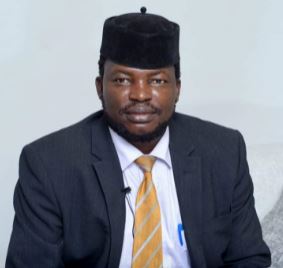BY DAK BUOTH RIEK-GAAK
On 3 July 2024, the Revitalized Transitional National Legislative Assembly (RTNLA) passed the National Security Act 2014 (Amendment Bill) 2024 Bill. On 12 July, the speaker took the Bill to President Salva Kiir for him to sign it into law. Should the latter sit and sleep on it, then the Bill will automatically become law after 30 days.
The abrupt passage of this legislation has generated an avalanche of criticisms, mainly because the Bill gives security agents the power to arrest people without arrest warrants. The Bill was in operation before it was passed on the aforementioned date. Many will concur that an arrest without a warrant is not new in South Sudan. We have dozens of South Sudanese that have been arrested and put behind bars without warrants of arrest. For instance, detainees such as former Juba Mayor Moulana Kalisto Lado and Human Rights Defender Moris Mabior Awikjok Bak were arrested and detained on different dates without a warrant of arrest.
The biggest problem
At times, an arrest without a warrant is not the biggest problem. The reason is that the police, security agents, and members of the public have inherent powers to arrest any suspect roaming within their localities. I think the biggest issue however is the absence of the rule of law. This means that when a suspect is arrested and taken to the nearby police station, he or she is denied his right to appear before a competent Court of law. The continued refusal by police and security agents to take arrested persons before court is the biggest problem we are facing in South Sudan today. In other words, the real issue is not about arresting people without a warrant, the issue comes when the arrested persons are denied their right to show up in court.
In law, there are types of presumptions, one of which is the presumption of innocence. More often than seldom, an accused person is presumed innocent until proven guilty by a competent court. In a nutshell, the rejection to take an accused or arrested person before court violates the natural law principle known as Audi alterem partem which means ‘‘let the other person be heard.’’
The role of parliamentarians
The cardinal functions of Members of Parliament are making laws, debating budgets on taxation and executive expenditures, oversight, and representation of people. In the book called Utilitarianism, liberty and representative government (1947) authored by John Stuart Mill, he described parliament as a committee of opinions obligated to watch and control government as well as to censure the executive branch of government.
These powers and functions of MPs are limited by the supreme law of the land, for they are not permitted to make bad laws that are repugnant to the Bill of Rights and the Constitution.
Timing of the bill
The timing of the introduction and imposition of this Bill points to the reasons and intentions of its proposers or sponsors. The Bill was drafted and passed to serve as a scarecrow against the internal and by extension external opposition groups not forgetting the angry and hungry South Sudanese citizenry.
Specifically, the Bill was tabled and passed to anger the opposition. Eventually, if the leaders of the opposition refuse to append their signatures on the [peace] agreement, then they will go around pointing blaming fingers at the opposition and say that they do not like peace. Also, the Presidency might have decided to compel and coerce parliament to pass the Bill, and after they passed it, the Presidency would announce its reservation and rejection of the Bill for political reasons. This political reason is that the presidency wants to gain popularity in the eyes of our impoverished populace who are now protesting against the Bill.
Among these two political reasons for seeking cheap popularity and sabotaging the Nairobi Peace Talks, the latter comes first. I believe the Bill was meant to block the way of Nairobi Peace Talks, dubbed the “Tumaini Initiative” so that opposition leaders do not reach South Sudan in time as expected. Nonetheless, since the Nairobi Peace Talks were suggested and endorsed by the president, it will be a self-betrayal to sign this Bill into law, for it will jeopardize the ongoing peace negotiation.
Finally, if the Bill is signed into law by President Kiir, chances are that the opposition leaders, namely General Stephen Buoy Rolnyang of SSUNA, General Pagan Amum of Real SPLM, General Mario Loku Thomas Jada of NAS-RCC, and General Malong Awan of SSUF will not sign the agreement as already mentioned in the press conference held at Ole Sereni Hotel on 9 July 2024.
The writer is the National Chairperson of Legal and Constitutional Affairs of the South Sudan People’s Movement/Army (SSPM/A) and is one of the outfit’s delegates to the Nairobi Peace Talks. He can be reached via eligodakb@yahoo.com
The views expressed in ‘opinion’ articles published by Radio Tamazuj are solely those of the writer. The veracity of any claims made is the responsibility of the author, not Radio Tamazuj.




